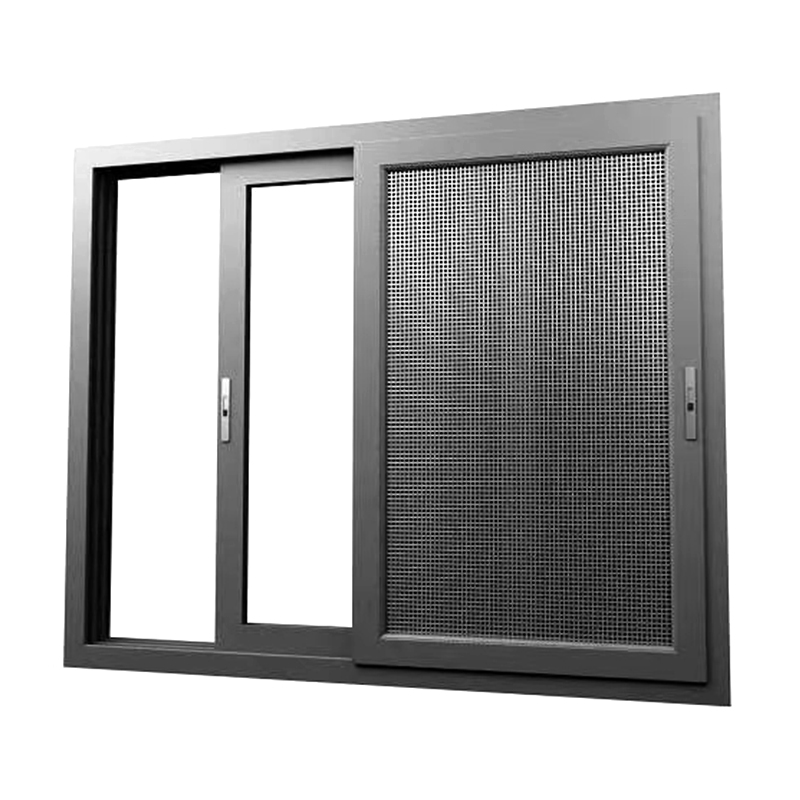Send inquiry
Aluminum sliding windows offer several advantages compared to other materials like vinyl and wood. Here are the main advantages:
Durability and Strength
Structural Integrity:
Aluminum: Known for its high strength-to-weight ratio, aluminum provides robust structural integrity, allowing for larger window sizes and thinner frames without compromising stability.
Vinyl: Less strong than aluminum; large windows might require thicker frames.
Wood: Strong but can warp or rot over time if not properly maintained.
Resistance to Elements:

Aluminum: Highly resistant to corrosion, especially when anodized or powder-coated. It withstands harsh weather conditions without degrading.
Vinyl: Good resistance to moisture and humidity but can become brittle in extreme cold.
Wood: Susceptible to moisture, which can lead to rot, warping, and pest infestation without regular maintenance.
Aesthetics and Design Flexibility
Sleek and Modern Look:
Aluminum: Offers a contemporary, sleek appearance with thin profiles, maximizing glass area and enhancing natural light.
Vinyl: Typically has thicker frames and a less sleek appearance.
Wood: Provides a classic, warm look but may not suit modern architectural styles.
Customization:
Aluminum: Available in a wide range of colors and finishes, including anodized and powder-coated options, allowing for extensive customization.
Vinyl: Limited color options, typically white or beige, with fewer custom finishes.
Wood: Highly customizable with paint and stain options but requires more maintenance.
Maintenance and Longevity
Low Maintenance:
Aluminum: Requires minimal maintenance. Occasional cleaning and inspection are usually sufficient.
Vinyl: Low maintenance but can discolor over time.
Wood: High maintenance; requires regular painting or staining and treatment to prevent rot and insect damage.
Longevity:
Aluminum: Long-lasting and highly durable, often outlasting vinyl and wood with proper care.
Vinyl: Durable but can become less aesthetically pleasing over time due to discoloration or brittleness.
Wood: Can be long-lasting if meticulously maintained, but generally has a shorter lifespan in harsh conditions compared to aluminum.
Environmental Considerations
Recyclability:
Aluminum: Highly recyclable, making it a more environmentally friendly option at the end of its lifecycle.
Vinyl: Less recyclable and can release harmful chemicals if not properly disposed of.
Wood: Biodegradable and can be sustainably sourced, but the environmental impact depends on forest management practices.
Energy Efficiency
Thermal Performance:
Aluminum: Modern aluminum windows often incorporate thermal breaks (insulating barriers) to improve energy efficiency and reduce heat transfer.
Vinyl: Naturally good insulator, offering excellent thermal performance.
Wood: Also a good insulator, providing natural thermal efficiency but requiring more maintenance.
Cost Considerations
Cost:
Aluminum: Generally more expensive than vinyl but can be more cost-effective than high-quality wood windows.
Vinyl: Typically the least expensive option, making it attractive for budget-conscious projects.
Wood: Often the most expensive due to material and maintenance costs.
Aluminum sliding windows offer a blend of durability, modern aesthetics, low maintenance, and design flexibility that makes them an excellent choice for many applications. They are particularly well-suited for large openings, contemporary designs, and environments where longevity and minimal upkeep are important. While they might come at a higher initial cost compared to vinyl, their long-term benefits often justify the investment.